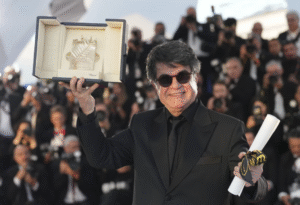The Aga Khan, who became the spiritual leader of millions of Ismaili Muslims at the age of 20 while studying at Harvard, passed away on Tuesday at 88. He died in Portugal, surrounded by family, as confirmed by his Aga Khan Development Network and the Ismaili religious community.
The Aga Khan IV, Prince Karim Al-Hussaini, was the 49th hereditary imam of the Shia Ismaili Muslims. His successor has already been designated in his will, but the name will not be revealed until a ceremony with family and religious leaders in Lisbon, with the date still to be determined. The successor is chosen from among his male descendants or other relatives, as per the Ismaili community’s tradition.
Prince Karim Aga Khan IV was believed by his followers to be a direct descendant of the Prophet Muhammad. At the time of his succession, his grandfather bypassed his father to choose him as the leader, believing he would be better suited to lead Ismaili Muslims in the modern era. Over the years, the Aga Khan became both a businessman and philanthropist, using his wealth to fund projects like homes, hospitals, and schools in developing countries.
Upon his death, tributes were immediately paid from charity groups he supported and from the equestrian world, where he was well known. Canadian Prime Minister Justin Trudeau described him as an “extraordinarily compassionate global leader” and a dear friend.
The Aga Khan was given the title “His Highness” by Queen Elizabeth in 1957 and became the Aga Khan IV that same year. He was studying at Harvard when his grandfather made him the heir to the Ismaili Muslim sect, a role he took on with great responsibility despite his young age. In a 2012 interview, he reflected on how he understood his life’s work even as a student.
The Aga Khan, a strong advocate for Islamic culture and values, was widely respected for his efforts to bridge gaps between Muslim societies and the West. His influence was notably enhanced by his avoidance of political involvement, which may have contributed to his success in this regard.
His main philanthropic organization, the Aga Khan Development Network (AKDN), focuses on critical areas such as healthcare, housing, education, and rural economic development. Operating in over 30 countries, the network has an annual budget of approximately $1 billion dedicated to nonprofit development initiatives.
The Aga Khan’s network of hospitals can be found in regions with limited access to healthcare, including Bangladesh, Tajikistan, and Afghanistan. He invested tens of millions of dollars in these areas to stimulate local economies and improve living standards.
The extent of the Aga Khan’s financial empire is difficult to quantify, but reports have suggested his personal wealth could be in the billions. The Ismaili community, which includes large populations in East Africa, Central and South Asia, and the Middle East, considers it their responsibility to donate up to 12.5% of their income to him as their spiritual leader.
In a 2012 interview, the Aga Khan explained that accumulating wealth was not inherently wrong, according to Islamic ethics. He stated that those with privilege had a moral duty to contribute to society.
Born on December 13, 1936, in Creux-de-Genthod, Switzerland, he was the son of Joan Yarde-Buller and Aly Khan. He spent part of his childhood in Nairobi, Kenya, where a hospital now bears his name. Throughout his life, he was known as a horse breeder, owner, and Olympic skier for Iran in the 1964 Winter Games. He also had a deep interest in architecture, establishing an architecture prize and supporting Islamic architecture programs at prestigious institutions like MIT and Harvard. His efforts also included restoring ancient Islamic structures worldwide.
The Aga Khan had lived in France for many years before residing in Portugal in his later years. His development network and foundation are based in Switzerland.
Plans for his funeral indicate he will be buried in Lisbon, though the specific date remains undisclosed.
He is survived by three sons, a daughter, and several grandchildren.













